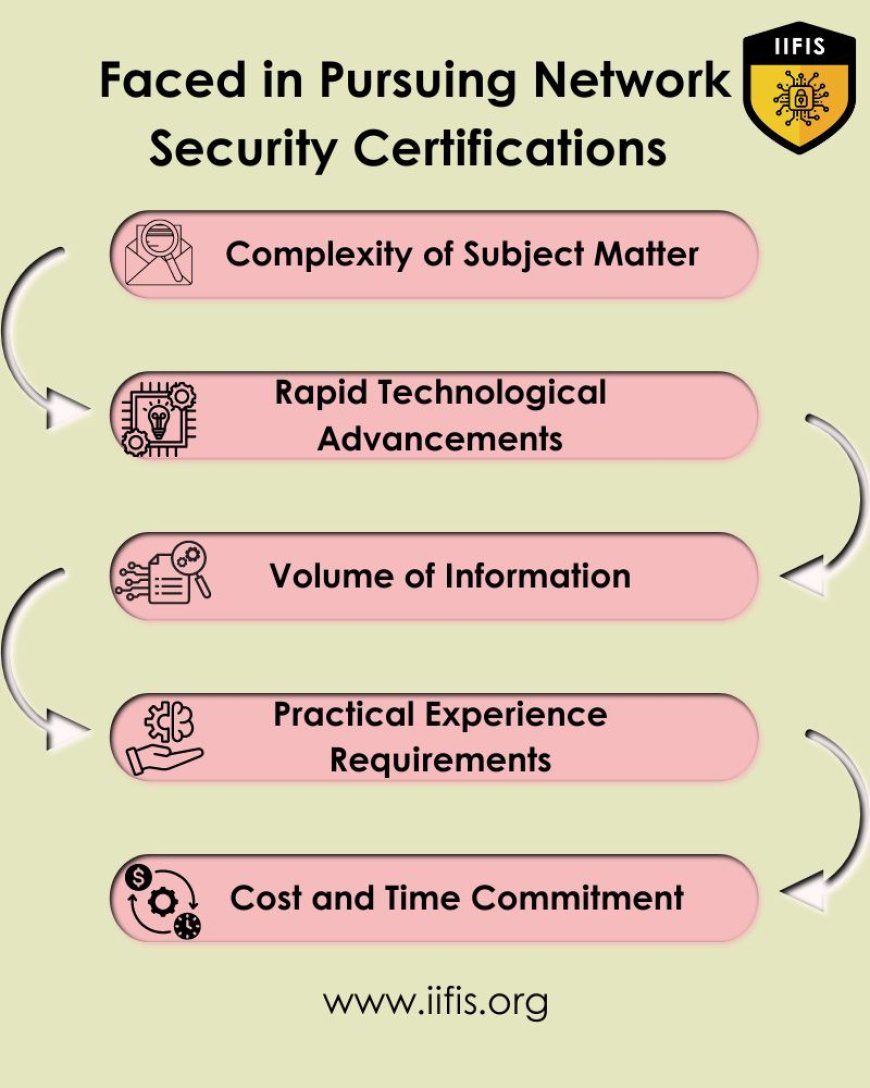Exploring Network Security Certifications
Discover top network security certifications to enhance your career. Explore training options, exam requirements, and job prospects in cybersecurity.

Network security has become important given the rapid increase in connected devices and our growing reliance on online shopping and communication. Network security is the process of protecting data using techniques like intrusion detection systems, firewalls, and encryption against misuse, unwanted access, and destruction.
The significance of network security includes not only external dangers but also internal dangers and adherence to regulations. Strong security measures are necessary due to the unintentional acts of employees and strict data privacy demands. missing network security can have serious repercussions, including hacking, fines, and reputational harm. Therefore, making investments in thorough network security processes and technology is crucial to minimizing risks, maintaining confidence, and facilitating the safe development of our digital society.
Challenges Faced in Pursuing Network Security Certifications
-
Complexity of Subject Matter: A wide range of technologies and ideas are involved in network security, such as intrusion detection, verification, and encryption. Networking fundamentals are a prerequisite for understanding these topics, and learning them can be difficult for novices as well as seasoned professionals.
-
Rapid Technological Advancements: Because technology is developing so quickly, certification examinations need to change all the time to stay current. To succeed in their certification projects, applicants need to stay current on the most recent advancements in network security, as new dangers and weaknesses are identified regularly.
-
Volume of Information: A lot of information is covered on certification tests, thus candidates must prepare for them by studying hard and extensively. Particularly for individuals juggling certification training with other career or personal obligations, the sheer amount of material can be debilitating.
-
Practical Experience Requirements: A lot of network security certifications demand candidates to pass tests and also have practical knowledge. It might be difficult to get meaningful practical experience, especially for those who are new to the subject or don't have access to specialist tools and resources.
-
Cost and Time Commitment: It can be expensive to pursue network security certifications in terms of training courses, study materials, and exam costs. Furthermore, candidates need to devote a substantial amount of time to their exam preparation because they have to juggle work, family, and other responsibilities with their certification goals.
Obtaining certifications in network security necessitates understanding intricate ideas, keeping up with quick technical advancements, organizing massive volumes of data, gaining practical knowledge, and controlling expenses and time commitments. Certifications provide professional advantages and subject-matter expertise, notwithstanding difficulties.

What are the key factors to consider when choosing a network security certification?
Choosing the right network security certification is crucial for your career.
-
Relevance to Career Goals:
Select a certification that is in line with your professional goals and the particular network security position you want to work toward. Think about whether companies in the sector or industry you want to work in will accept and value the certification.
-
Industry Recognition:
Look for certificates that are highly recognized in the cybersecurity field. Employers and peers may see your certification differently depending on the standing and legitimacy of the certifying body or organization that provides it.
-
Curriculum and Coverage:
Examine the certification program's program to make sure it includes the subjects and abilities needed for your intended job path. Seek credentials that offer thorough instruction on best practices, technology, and principles related to network security.
-
Practicality and Hands-on Experience:
Examine certificates that demand candidates to show practical abilities and knowledge, or those include practical, hands-on components. Exercises, laboratories, and simulations that are more hands-on can improve your learning process and assist you in handling network security issues in practical situations.
-
Cost and Accessibility:
Consider the price of earning the certification, taking into account the exam fee, study materials, and any other training or resources you might require. Think about how accessible and adaptable the certification program is with your financial and time constraints.
-
Continuing Education and Renewal Requirements:
Find out if the certification needs to be updated or requires continuing education to be valid. Take into account the time and materials needed to complete any long-term requirements for recertification or continuing education.
-
Community and Support:
Examine the resources, networking opportunities, and assistance that are available for the certification. Seek qualifications that provide you access to professional communities, online forums, and support systems so you may network with peers, mentors, and industry professionals.
Uses for Network Security
Protecting Data:
-
Network security tools help to avoid unwanted access to private data, including financial records, intellectual property, and personal information. Network security protects confidentiality and stops data theft by protecting information while it's in transit and placing access controls in place.
Preventing Cyber Attacks:
-
Several cyber threats, including malware, phishing, and denial-of-service (DoS) assaults, are defended against by network security. The danger of cyberattacks and data theft is decreased by the identification and blocking of harmful activity by firewalls, intrusion detection systems (IDS), and antivirus software.
Ensuring Business Continuity:
-
Business continuity is preserved in the case of network outages or cyberattacks thanks to network security features like redundant systems and disaster recovery strategies. Network security helps companies run efficiently and bounce back from disturbances fast by reducing downtime and data loss.
Securing Communication Channels:
-
Network security protocols create safe channels of communication between devices, websites, and apps. Examples of these protocols are Secure Sockets Layer/Transport Layer Security (SSL/TLS). These methods provide safe network communication by safeguarding against man-in-the-middle attacks and eavesdropping by protecting information during transmission.
Complying with Regulations:
-
Network security helps companies adhere to legal obligations and industry standards about data security and privacy. Network safety precautions must be implemented by regulations like the General Data Protection Regulation (GDPR) and the Health Insurance Portability and Accountability Act (HIPAA) to safeguard confidential data and stop data theft.
Protecting Intellectual Property:
-
Network security protects theft and illegal access to private information, confidential information, and intellectual property. Businesses and organizations can maintain their competitive advantage by implementing network safety protocols that limit access to important information and keep an eye out for any unusual activity.
Supporting Remote Work:
-
Network security is crucial for providing safe remote access to corporate networks and resources as remote work becomes more common. Multi-factor authentication (MFA), secure remote desktop protocols, and virtual private networks (VPNs) all contribute to the security of distant connections and the prevention of unwanted access to important information.
Network security certifications are crucial for handling cybersecurity issues. Career prospects are improved by understanding the importance of network security, conquering certification obstacles, and taking significant factors into account while selecting a certification. Network security provides business continuity, protects data, avoids cyberattacks, and conforms with legal requirements. As remote work develops, secure access and communication routes are supported. Setting network security as a top priority through certifications and best practices minimizes risks, upholds confidence, and promotes the safe development of the digital society.






















